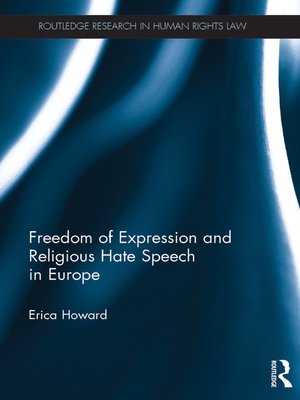Freedom of Expression and Religious Hate Speech in Europe
ebook ∣ Routledge Research in Human Rights Law
By Erica Howard

Sign up to save your library
With an OverDrive account, you can save your favorite libraries for at-a-glance information about availability. Find out more about OverDrive accounts.
Find this title in Libby, the library reading app by OverDrive.



Search for a digital library with this title
Title found at these libraries:
| Library Name | Distance |
|---|---|
| Loading... |
In recent years, the Danish cartoons affair, the Charlie Hebdo murders and the terrorist attacks in Brussels and Paris have resulted in increasingly strident anti-Islamic speeches by politicians. This raises questions about the limits to freedom of expression and whether this freedom can and should be restricted to protect the religious feelings of believers. This book uses the case law of the European Court of Human Rights to provide a comprehensive analysis of the questions: whether legal prohibitions of religious hate speech violate the right to freedom of expression; and, whether such laws should be used to prosecute politicians and others who contribute to current debates when they use anti-Islam rhetoric. A well-known politician who uses such rhetoric is Dutch politician Geert Wilders. He has been prosecuted twice for hate speech, and was acquitted in the first case and recently convicted in the second. These prosecutions are used to illustrate the issues involved in drawing the line between freedom of expression and religious hate speech. The author argues that freedom of expression of politicians and those contributing to the public debate should not be restricted except in two very limited circumstances: when they incite to hatred or violence and there is an imminent danger that violence will follow or where it stops people from holding or manifesting their religion. Based on this, the author concludes that the European Court of Human Rights should decide, if it is asked to do so, that Wilders conviction for hate speech violates his freedom of expression.







